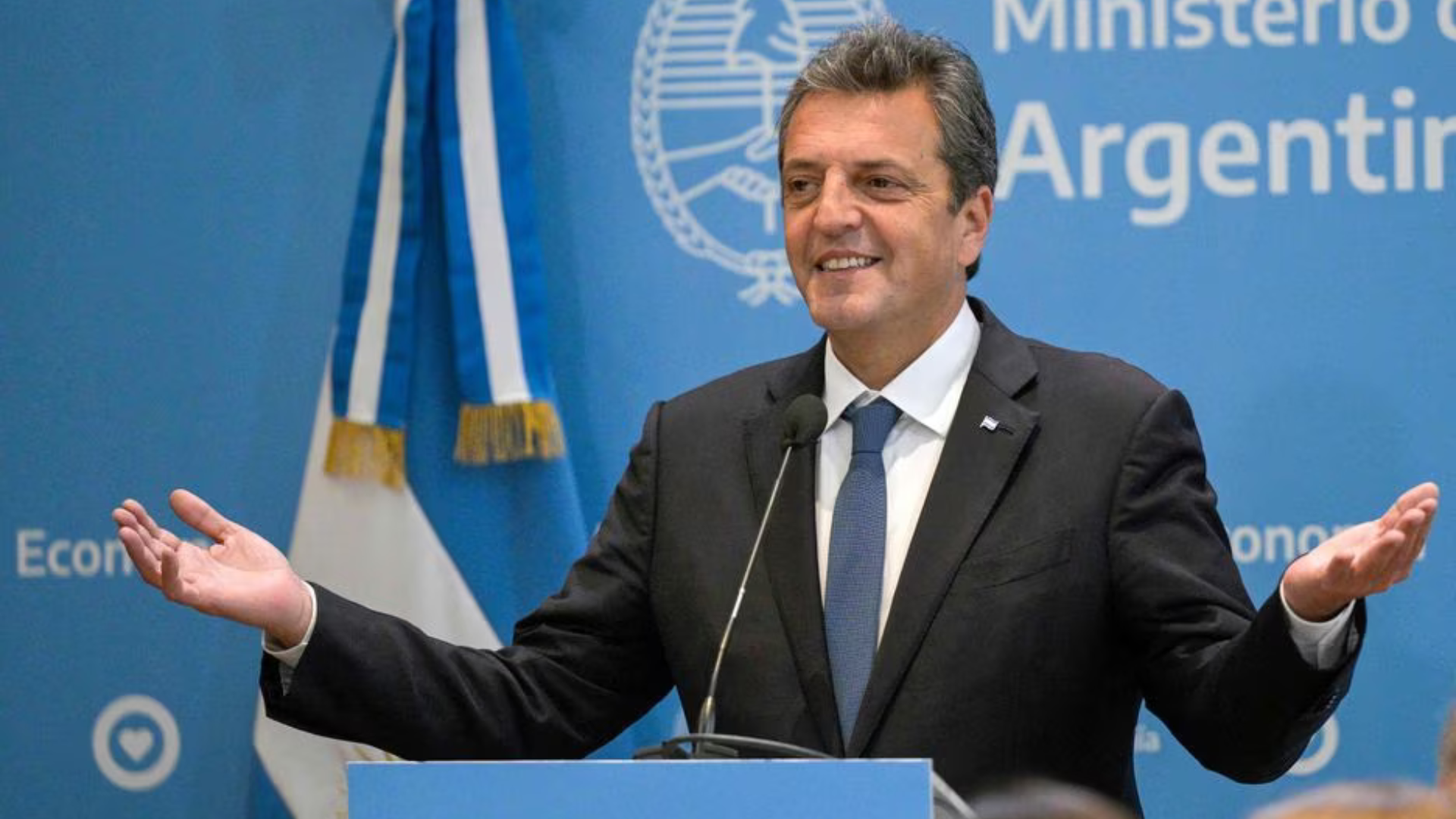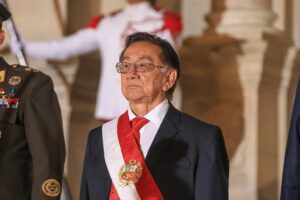
Published 10/26/2023 15:22 | Edited 10/26/2023 16:30
After an encouraging first round – which showed the resilience of Peronism in the face of the fascist threat – Argentina is preparing for the final round of the presidential elections, scheduled for November 19th. The initial message from the polls, in the vote last Sunday (22), surprised by contradicting the majority of electoral polls.
The current Minister of Economy, Sergio Massa, from the União pela Pátria coalition, came out ahead in the dispute, with 9.6 million total votes (equivalent to 36.68% of valid votes). The ultra-rightist and self-proclaimed “anarcho-capitalist” Javier Milei, from the A Liberdade Avança ticket, had 7.8 million votes (29.98%).
Only one poll on the eve of the first round predicted Massa’s leadership – and yet, the advantage opened by the Peronist presidential candidate over Milei was 1.7 million votes. Inside and outside Argentina, several mainstream media outlets classified the result as the “victory of fear”. Milei, the “Argentine Bolsonaro”, abused reactionary and anti-popular promises – some even in primaries –, alienating the support of voters critical of the Alberto Fernández government.
Milei’s stagnation was not the only surprise. The traditional right – which had already suffered a bitter defeat in 2019 – shrank even further, going from 40.28% to 23.8% of the vote in four years. Even so, 6.2 million Argentines chose Patricia Bullrich, the candidate of the Together for Change coalition, supported by ultraliberal former president Mauricio Macri.
This Wednesday, both the creator, Macri, and the creature, Patricia, declared support for Milei. Analysts, however, consider that the transfer of votes remains in dispute. The ticket itself split – the other parties of Together for Change opted for neutrality. Although Patricia’s joining Milei was already expected, the official announcement received plenty of criticism. The ultra-right candidate agreed to publicly apologize to his new ally, against whom he made slanderous accusations in the first round.
Dead heat
Amid the division on the right, the first poll for the second round came out. According to a survey by CB Consultoria, published this Wednesday by the newspaper Clarion, the two presidential candidates are tied: Milei appears with 41.6%, and Massa, with 40.4%. “We have a scenario of extreme parity with the possibility for both. There is a technical tie”, says Cristian Buttié, director of CB Consultoria. The margin of error is 2.4 percentage points, plus or minus.
The survey indicates that, although the majority of Patricia Bullrich’s voters lean towards Milei, there are 11.8% who say they are undecided and 27.5% who talk about canceling their vote, voting blank or not voting at all. “It will be especially important to see what those 11% who are undecided will do”, emphasizes Buttié. In his view, it is up to the Peronist to make “concrete offers to that part of the coalition that has Milei as its limit”.
Milei’s challenge is to slow down her speech to attract the trust and vote of more voters – but not slow down so much that she loses part of her radical base. His most exotic and invariably absurd proposals (such as dollarizing the economy, ending the Central Bank, leaving Mercosur and allowing the sale of human organs) helped him gain loyal followers, but imposed an electoral ceiling. Between the primaries in August and the first round this month, the far-right presidential candidate became dehydrated.
In the second round, Milei will try (even more) to glue Massa’s candidacy to the Argentine crisis. In a country where annual inflation is expected to reach more than 200% and poverty affects 40% of the population, the tendency for an oppositionist to win could seem natural. Not anymore. Former favorite, one of those who even envision a victory in the first round, now Milei needs to prove why he is a better alternative. Saying that she will refound Argentina with a series of factoids is not enough. Nor does criticizing Pope Francis gain votes.
No to fascism
Massa, in turn, will resort to another strategy to rid Argentina of fascism. The campaign is inspired by the 2022 Brazilian elections, in which a broad and democratic front around the candidacy of Luiz Inácio Lula da Silva (PT) prevented the re-election of President Jair Bolsonaro (PL). In his first speech after Sunday’s vote, the Peronist pledged to lead “a government of national unity” and rescue Argentine pride: “This is not a shit country, as people have said – but a great country,” he declared. , citing one of Milei’s insults.
In addition to attracting Patricia Bullrich’s voters who do not accept an extremist approach, it is necessary to inherit the majority of votes from fourth place in the first round, the Peronist (and dissident) Juan Schiaretti (6.8%), and from fifth place, the leftist Myriam Bregman (2.7%). Another, more difficult mission, is to call voters who did not go to the polls last Sunday – abstention, at 25%, was one of the highest in the country’s history.
It will not be easy to reconcile the defense of his performance as minister, a platform to face the economic crisis and a call for anti-fascist mobilization. If it depends on Otavio Antunes and Raul Rabelo, Brazilian marketers who are part of his campaign, the democratic agenda will be a priority. They maintain that answering the question “which Argentina do we want?” will be the axis of the candidacy in the second round.
This week, deputy Victoria Villarruel, Milei’s deputy, made Massa’s work easier by defending the review of compensation for victims of the military dictatorship (1976-1983). In no South American country is the rejection of authoritarian regimes greater than in Argentina. The scope for polarization is given.
Source: vermelho.org.br

